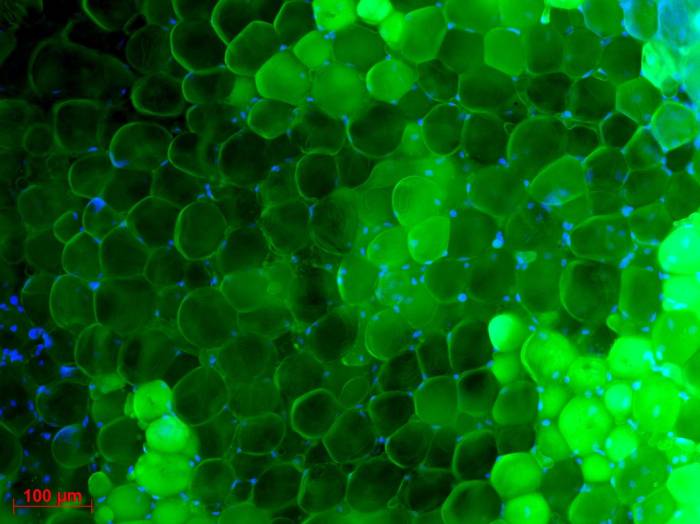Lifestyle
Potential Improvement in Type 2 Diabetes Treatment Discovered – Monash University Research Finds


Monash University together with a team of international researchers decoded what causes insulin resistance in fat tissue cells which has been a major stumbling block in treating and preventing type 2 diabetes. This research gave birth to the development of PATAS, a new drug that ‘reboots’ how fat cells use insulin to revolutionize type 2 diabetes treatment and improve the outlook of hundreds of millions of patients globally.
Dr. Vincent Marion, the Inserm study coordinator, and deputy director at the Laboratory of Medical Genetics in Strasbourg, France, along with his team, designed the breakthrough peptide drug PATAS and has shown that it was able to fix this problem by enabling glucose to be used in fat cells.
PATAS, which is being developed by AdipoPharma, could be delivered by simple injection and possibly a patch. It may also have the potential to prevent type 2 diabetes, a major global epidemic, largely driven by obesity.
Co-researcher Paul Zimmet AO, Professor of Diabetes at Monash University, said the discovery could improve metabolic control of diabetes and reduce the risk of the serious complications of diabetes including heart, kidney, liver, and eye disease.
PATAS corrects an abnormality in fat cells by separating two proteins, ALMS1 and PKC alpha, that are associated with insulin resistance by blocking insulin from initiating glucose uptake.
In rodent studies, PATAS reduced insulin resistance, glucose intolerance, and fat buildup in the liver (steatosis). Beneficial effects were also observed in glucose-intolerant animal models. Similarly, when used on cultured human fat cells in the laboratory and independent contract research organizations, the drug reactivated glucose uptake in the fat cells.
Risks of Diabetes in the Philippines
The International Diabetes Federation is alarmed by the rapid increase of adults diagnosed with diabetes in the country and it is expected to further rise to 5.4 million by 2030 and 7.5 million by 2045. Diabetes is currently the fourth leading cause of mortality in the Philippines. According to a report by the Philippine Statistics Authority released last January 2023, 26,774 deaths due to diabetes mellitus have been recorded in the previous year.
Aside from lifestyle changes and medications, the Department of Health continues to develop and evaluate add-on treatments for people with diabetes mellitus, such as prescribing Dapagliflozin to diabetic patients and those at high risk of cardiovascular disease and/or diabetic neuropathy.


Mouse visceral adipose tissue, fluorescently labeled with AdipoRed. Nuclei colored blue. (Image courtesy: Vincent Marion)
Diabetes Medication Breakthrough
The diabetes study breakthrough emerged following research into Alstrom Syndrome, an ultra-rare genetic disease in children. It is associated with obesity and severe insulin resistance that leads to type 2 diabetes and an accelerated form of liver steatosis and fibrosis. The researchers found that insulin resistance was linked to the dysfunctional protein, ALMS1.
Building on this previous research, the multinational team next discovered that in normal fat cells and upon insulin signaling, a protein called PKC alpha is released from ALMS1 to trigger glucose uptake. With insulin resistance, PKC alpha is no longer released from ALMS1 and hence glucose is no longer absorbed by the fat cells to be utilized.
Dr. Marion shared that in cultured human adipocytes as well as in most relevant animal models, PATAS was able to separate the proteins and restore normal function of glucose uptake and utilization in the fat cells.
This research study has for the first time, identified the root cause of insulin resistance in adipocytes, a precursor of type 2 diabetes, and developed a drug that reduces insulin resistance and restores normal glucose uptake.
Professor Zimmet said the discovery was potentially one of the most important he had seen in his 45 years of diabetes research. “This is a very exciting discovery that could have enormous health benefits, not just for people with type 2 diabetes, but also for patients with other chronic medical disorders caused by insulin resistance including cardiac diseases, and fatty liver and the Metabolic Syndrome,” Professor Zimmet added.
The research was led by Inserm, France’s National Institute of Health and Medical Research, in collaboration with the University of Birmingham (UK) and Monash University. Human clinical trials are likely to start within 2023.
To know more about the latest developments in the field of health and medicine, visit Monash University’s official website.













